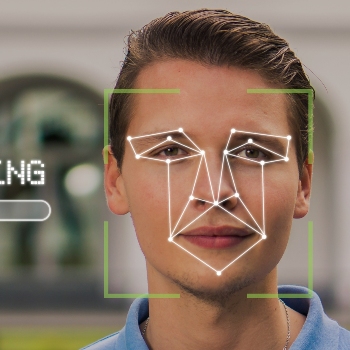
Dr Anita Howarth
Senior Lecturer in Journalism
Marie Jahoda 222
- Email: anita.howarth@brunel.ac.uk
- Tel: +44 (0)1895 267047
- Journalism
- Social Science and Communications
- Social and Political Sciences
- College of Business, Arts and Social Sciences
Research area(s)
· Humanitarian communication, migration and refugees
· The politics and communication of food
· Digital technologies in university classrooms
· Environmental communication, journalism and risk
Research Interests
Political communication
Food communication
Risk communication
Research grants and projects
Research Projects
Grants
Funder: Brunel University
Duration: December 2015 - May 2016
Mobile technologies and the push to reconfigure the workings of universities in the digital economy present various instrumental and ethical challenges. Most universities are investing in digital and technical infrastructure to administer, deliver and disseminate research and education. Dedicated platforms for teaching and course administration, the promotion of lecture capture and the enhancement of teaching and student experiences in the classroom have implicated technologies at the forefront of these endeavours. Human and organisational interfaces with technologies present many challenges for the academy, for institutions and equally for educators and students. In view of this, the project seeks to review the main challenges facing the wiring up of the academy through convergent digital technologies today. Many universities have enacted policies to both promote and govern new media technologies. What then are the main opportunities and challenges (both ethical and legal) presented by new technologies for the academy and how do new media technologies both empower us and make us vulnerable? With a view to exploring these issues, the first phase of research undertaken in 2013 looked at the policies enacted by universities with regard to lecture capture and recording in the classroom with particular attention to disability rights, performance rights and privacy. The first phase of research yielded some rich material and became the basis of two research papers (see below). I would like to now extend the research to its second phase to review the development of policy and attendant changes and challenges that confront us in the coming years. There is already an indication that most universities are switching from an ‘opt-in’ clause to an ‘opt out’ clause in terms of lecture capture. These overarching changes have implications for how educators and students interface with technology and how these may mediate both the take-up rates as well as the salience in governing new media technologies in the academy beyond the JISC guidelines. The second phase will be in collaboration with Dr Yasmin Ibrahim, Queen Mary, University of London. Dr Ibrahim’s work is in new media technologies, mine is in the area of risk and we have already co-authored one research paper based on the first phase of data collection (I’ve attached it here should you wish to read it). The findings from this research will have important bearings for the academy as a whole by illuminating some of the fault lines within policy and governance where institutions are not adequately addressing the issues presented by new media technologies both in the ethical and legal sense. The research will yield original data on the governance of technologies in the UK universities. It will be the basis for renewed academic output including research papers, journal articles, conference presentation as well as an impact case study to highlight the issues facing the UK academy and the recommendations for sound policy making to address the inherent voids within the policy domain which make institutions vulnerable in the digital economy.
Project details
One of Anita’s current projects is concerned with what the emergence and politicization of food banks signify in Britain today. Food poverty has been rising steadily over the past two decades but has now reached post-war highs. The retreat of the welfare state and ideologically-driven benefit cuts have created a space in which food banks have come to signify more than visible spaces of need. Food banks not only render visible a hidden hunger; they also disrupt a neo-liberal paradigm of austerity by presenting new questions about how poverty is legitimized or de-legitimized in one of the wealthiest countries in the world. The debates are highly polarized around shame and stigma. A recent article mapped out some of these broader themes through an analysis of how the use of social media platforms by a food bank user and blogger challenged and disrupted the dominant discourse and ideology of austerity. Another article has looked at growing food banks as a lens on the corporeal vulnerability of the human body not only to shifting individual circumstances, but also to political and socio-economic shifts. Anita has been granted research leave in 2017 to write a grant or fellowship application to support the further development of this work.
Anita is also working on two collaborative projects. The first one, focuses on representations of the ‘jungles’ of Calais and the struggles of the refugees who occupy them. In particular, it challenges and questions mainstream media depictions and political rhetoric which de-humanize refugees and migrants, and in the process highlight deep-seated anxieties about the issues of immigration and the ‘Other’. The current research looks at interventions by non-governmental organizations, charities, including Doctors of the World, and activists to ‘re-humanize’ the migrant.
A second collaborative project is concerned with the various instrumental and ethical challenges presented by mobile technologies and the push to reconfigure the workings of universities in the digital economy. Most universities are investing in digital and technical infrastructure to administer, deliver and disseminate research and education. Dedicated platforms for teaching and course administration, the promotion of lecture capture and the enhancement of teaching and student experiences in the classroom have positioning technologies at the forefront of this push. This project reviews the main challenges facing the wiring up of the academy through convergent digital technologies today. As universities increasingly seek to promote and govern new media technologies what are main opportunities and challenges presented by new technologies and how do they empower us and make us vulnerable? This research is being funded by internal Brunel grant of £7700.
Research links
Co-author network
- Dr Shona Koren Paterson
- Dr Marcus De Matos
- Prof Alexandra Xanthaki
- Prof Daniele Rugo
- Visualise network
Similar research interests
- Professor Ann Gallagher
- Mr Diarmuid Denneny
- Dr Syed Muhammad
- Dr Thaleia Deniozou
- Mrs Nieke Monika Kulsum
Research group(s)
- IEHS

